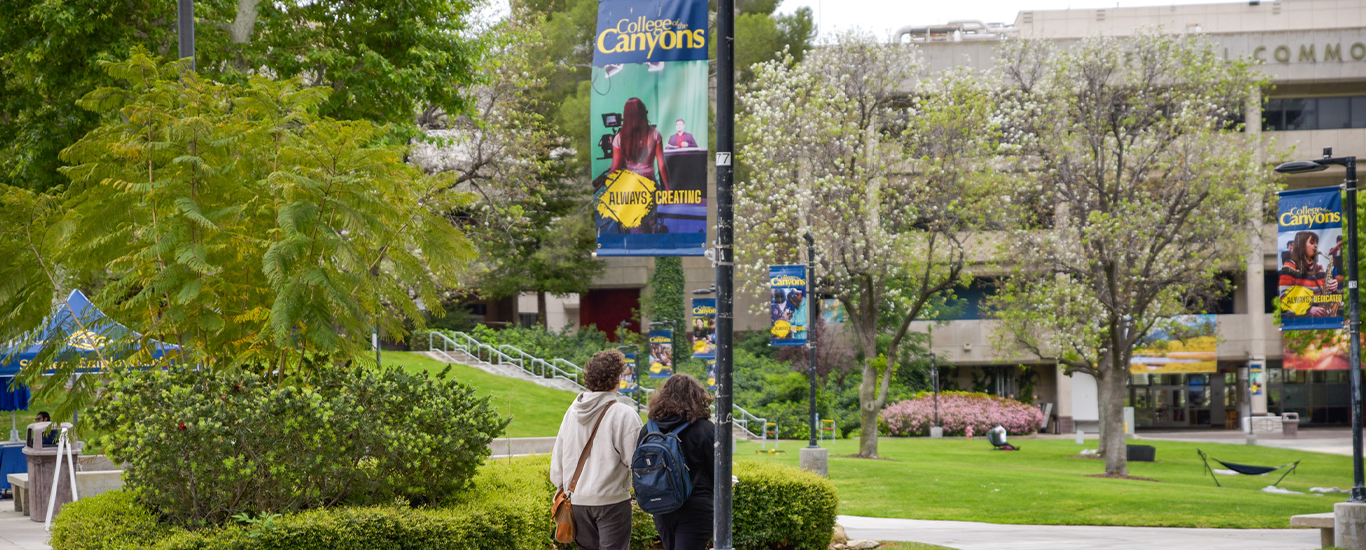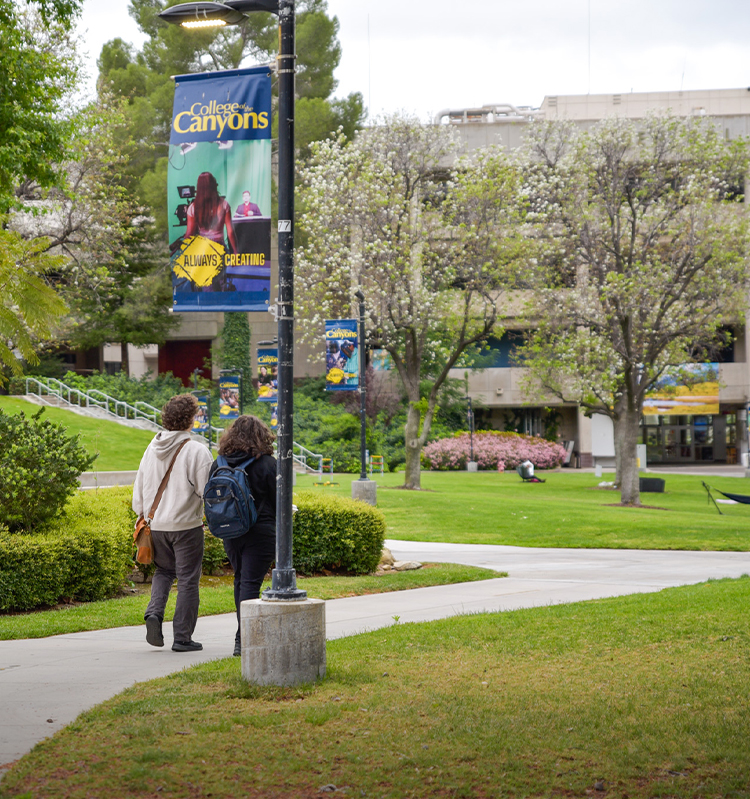PIO
Emergency Preparedness
How to prepare for an emergency when every second counts.
Overview
An overview of emergency measures.
Active Shooter
Three things to remember: Run. Hide. Fight.
- Run to the safest place to hide. If you are outside, get indoors or lock yourself inside your car.
- Hide yourself and others until help arrives. Hide in closets, restrooms, interior rooms that lock, behind furniture, or on the floor of your motor vehicle.
- Develop a plan to fight as a last resort if a shooter enters your space. Utilize whatever is handy, such as items that can be thrown. If possible, use the element of surprise and/or attack as a group.
Medical Emergency
For minor injuries or illness:
- If possible, escort person to Student Health Center, STCN-122, near cafeteria.
- Notify Campus Safety, (661) 259-7800, Building X-8.
For major, severe or critical injury or illness:
- Ask someone in area to notify Campus Safety while you stay with injured party.
- Call 911. Provide location, phone number, injury or illness description, number of people involved.
- Do not move victim(s) unless an imminent hazard makes it unavoidable.
- Administer CPR if necessary.
- Keep victim(s) warm and comfortable.
- Don't leave victim(s) unattended.
Hazardous Materials
If toxic fumes or chemical spill occurs inside (like a classroom or building), vacate the area immediately and let someone in authority know:
- Location of spill
- Description of substance
- Type of irritation it's causing
If outside, you will likely be notified via COC-ALERT messaging to evacuate or shelter in place. You also may be asked to:
- Turn off all fans, air conditioning and heating
- Tape up vents and outlets
- Plug up any cracks under the doors
- Seal off outside air sources with plastic and tape until emergency personnel arrive.
See Something?
Violent and/or threatening behavior is not tolerated and should be taken seriously. Whether you're a victim or a witness, it's important to let someone know.
- Campus Safety – Call the main college line on either campus to be connected, or visit in person.
- Student Health Center – Counselors are available to assist you.
- Tell an instructor or staff member. No matter where you are on campus, an instructor or staff member is probably nearby. You can always walk into the nearest office for assistance.
Remember, be proactive. If you see something, say something.
Wildlife
Our campuses are home to many creatures, and it's important that we respect their space.
- Never feed, approach or touch them.
- Most wild animals bite and can pass on disease or serious infection.
- Bobcats, cougars and coyotes are rarely seen, but if you encounter one that is aggressive, make loud noises, throw rocks and wave your arms.
Please notify the college of any animals that may cause a safety issue or be in danger themselves:
- Valencia: (661) 259-7800
- Canyon Country: (661) 362-3800
Utility Failure
In the event of a power outage:
- Emergency lighting will activate.
- Elevators will automatically descend to the lowest level and the doors will open.
- If an alarm sounds, evacuate the building.
If you detect the smell of natural gas:
- Do not switch on lights or electrical equipment.
- Vacate the area and notify others.
- Alert Campus Safety immediately.
- Go to your evacuation site.
Fire
The next time you are on your way to class, notice the locations of the nearest fire alarm, fire extinguisher and exit. What should you do if fire is making it difficult for you to get out?
- If caught in smoke, drop to your hands and knees and crawl.
- Before opening doors, feel them for heat to prevent what is known as a backdraft. If the door is hot, find another way out.
- If trapped in a room, place a moist cloth under the door to keep the smoke out. Try to signal first responders from a window but don't open it.
Bomb Threat
In the past, most threats came by phone, but with the dawn of email and social media, threats can now come through many different types of communication. When dealing with a bomb threat, you should:
- Report it to Campus Safety, even if you think it could be a hoax.
- Provide as much information as possible, and print out or take a screen shot of the threat if it's sent or posted on the Internet.
- If you spot a suspicious package or unattended bag, report it to Campus Safety immediately.
Earthquake
Our campuses are modern and built to sustain considerable shaking, but keep these tips in mind:
- Duck, cover and hold on until shaking stops.
- Do not try to enter or exit a building.
- If you're inside, get under a desk or table, or duck and cover next to a wall.
- If you're outside, get away from buildings, trees and power lines. Drop to the ground and stay there until the shaking stops.
- After the shaking, when evacuating a building, feel doors for heat. If hot, find another route.
- Evacuate to your designated evacuation site.
Emergency Notification
If there's an emergency – such as a public safety situation, severe weather or disaster that could impact the campus – you'll get a COC-ALERT text message like this. Or an email to your personal account. Or a voice message to your cell or home phone. Or you could get some or all of them. It depends on your preferences.
- It's important that your contact information is up-to-date.
- Log in to My Canyons to verify your information so we can reach you.
Building Evacuation
Every classroom has an evacuation map. It shows the room's location, the best evacuation route, and where to go. Take a second to memorize the best way out. It will save time in an emergency. If you have to evacuate...
- Walk – don't run.
- Bring your stuff. You may be away for a while.
- Take the stairs – elevators probably won't work.
- Help people who need it.
- Don't return to the building until campus staff gives the OK.
Campus Emergency Guides
Our emergency guides contains recommended step-by-step procedures for dealing with emergencies on campus. Safety is a top priority at College of the Canyons. We have well-trained and effective Campus Safety and Incident Command teams, and we enjoy close proximity and excellent working relationships with local first responders. Our faculty and staff are trained to respond in a wide variety of emergency situations. That training will be exponentially more effective if you – our students – know what is expected of you when an emergency arises. We encourage you to review the information in this booklet – and to become actively engaged, be aware of your surroundings, and ask questions so you know how the college will respond and what your role is.

 My Canyons
My Canyons  Canvas
Canvas 
